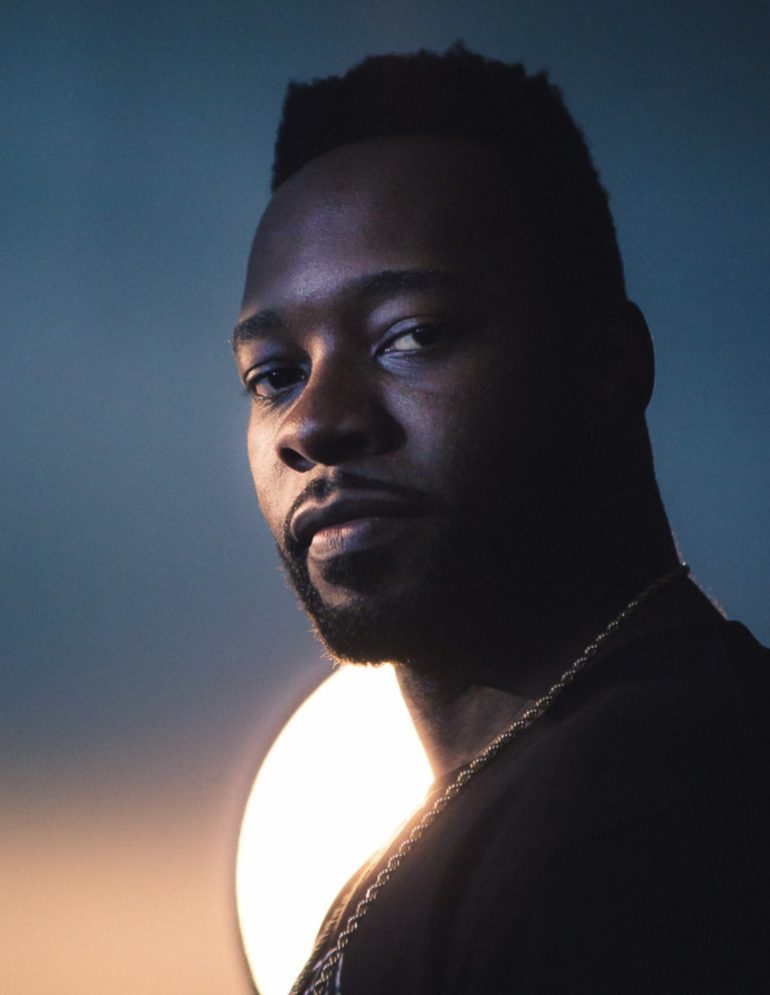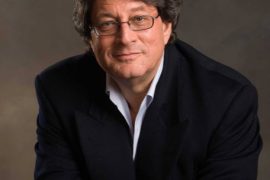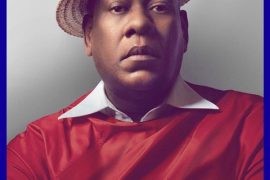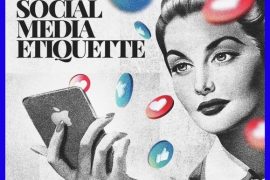Tell us about Lonnie Edwards and the paths that led you to become an acclaimed producer and filmmaker.
Interestingly enough if someone were to ask me 10 years ago if I thought I’d be a filmmaker I would’ve laughed, heartily. The fact that I’ve achieved so much this far in the vast world of film is wild to me when I think back to 6 years ago. Don’t get me wrong, I’ve always loved watching movies and I feel like going to the movie theater is my own personal pastime, but it was never something I saw myself doing. I worked in an office for a long time and was tremendously unfulfilled.
Fashion was the reason I quit my ‘9-5’, I wanted to create something that was like supreme or one of those “hypebeast” brands, which were more of a niche thing back then. So I started a clothing line and began working with different artists to create designs. I instantly was pulled into the world of street art and began curating shows and events just off the love of artwork. The thing that pushed me into film was being forced to create my own promotional videos for the shows I was doing. At the time I had no idea what I was doing but the guy I hired to make the promo video wasn’t that good. I decided to do it myself and it was a wrap after that.
When did you realize you wanted to document stories of power and purpose?
Initially, when I finally came around to creating my first short film ‘Parietal Guidance’, my vision and purpose as a filmmaker aligned with very surface level aspirations. I wanted to make a body of work that was unique and stylized.
It was more about me, I think many times we see this grandiose idea of what we want to accomplish in a way that only serves ourselves. In doing that, I feel as though it takes away from the essence in overall power in serving a greater purpose. As we got closer to production I began spending more time interacting with this NFP organization called Chicago Art Beat Studios, an art-based violence intervention group that works with kids, and it’s founder Erica Badie. Just seeing the dedication, passion and work she put into something that not only ignited direct organic change through the lives her organization inspired, it also was hella unique. At the time it was nothing like I’d ever seen. So with the assistance of Art Beat Studios I was able to cast a few kids from the group. Working with them, getting to know them and mostly seeing the excitement in their eyes was the moment I realized the depth to which my work could reach and from that project moving forward my perspective on the purpose behind my work became directly correlated with the power of something uplifting and inspiration while still aligning with my vision artistically.
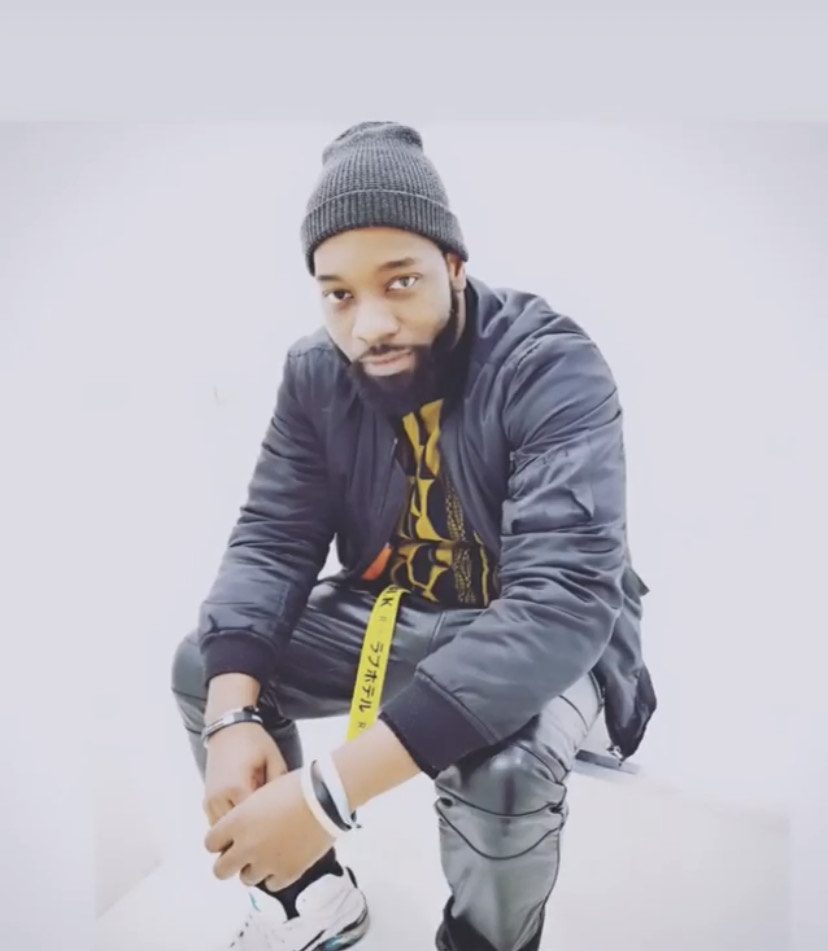
Why should the world see things in your perspective?
I think the world should be open to seeing things in all perspectives. The way I perceive things isn’t necessarily the same as the next person. Unfortunately, the world isn’t that open-minded. However, with that being said, from my perspective as a black man in America I think it’s immensely important for the world to see things in my perspective. We’re currently experiencing a bit of empathy from a large portion of the world, where attention is being brought towards continued injustices. I’ve seen these injustices happen and experienced them first hand throughout my time on this earth. Unless you’re a black person you’ll never fully understand the depths to which we go through on a daily basis but the fact that people are taking a moment to empathize and become more attentive to what has been going on is a beautiful thing. Which is why it’s important to see things through a less privileged person’s perspective. I hope this energy and people’s desire to educate themselves on these things continues throughout this country for years to come. This is the type of thing that evokes real change.
What has been the most significant part of your creative journey?
I think my creative journey runs parallel to my life’s journey in regards to self-growth, especially right now. I’m beginning to feel the connectivity between the things I create and the authenticity of aligning and knowledge of self. I’m at a very transformative place attempting time shed the parts of who I was that I no longer want to be. With that comes moments of facing repressed things.
The process is uncomfortable at times, it’s painful at times, and exhausting at times but it’s absolutely necessary. We’re constantly under self-development and we have opportunities to assess ourselves, I’m using art not only as an outlet or a space for me to sit with myself, learn from my growth but it’s also an opportunity for me to potentially reach lots of people sharing things through art and most important being vulnerable, hopeful that can be an ongoing example to the black community and just the world in general towards changing the narrative in how those actions don’t make you ‘weak’. These aren’t things that we’re encouraged to do, especially as a Black man.
How has being a black man in today’s society shaped your artistry?
For me, ‘today’s society’ has been how I’ve experienced society my entire life. I know nothing more or nothing less. It hasn’t changed. My work is based off my experiences and the things I know. The only thing that’s truly shaped my artistry is my own growth.
How important was it to trust your instincts when making a documentary or film?
That goes back to the intention behind what you’re doing. Just like in everyday life, when the intentions are pure, everything else falls into place. So, I’m only speaking for myself here.
Instinctually I want to create something is an honest perception of the subject I’m working on. If it’s a documentary, I tend to either want to be completely unbiased or I want express facts or perspectives that haven’t been touched upon cinematically. For instance, my film ‘Exodus’ (Sounds of the Great Migration) wasn’t unique in the sense of it being another film about the great migration, but it was unique because it showed how music and sound that we hear today is directly connected to the great migration. If I’m making a narrative I want the audience to get lost in the film emotionally or get lost in the plight of the character, so that by the end of the film you feel as though you’ve at the very least learned how it may feel to be this character.
Do you agree that a body of work often outweighs a single failure?
I don’t believe in failure anymore. If we actually think about the act of ‘failing’, it’s based off of a perception. Perceptions change from person to person and from day to day. There are things that we look back at and considered as a taking a huge ‘L’ (loss) that we laugh at and wonder not only why did we consider it a failure, but we now look at it as a valuable lesson.
With all that being said, a body of work is a body of work. We should all take ‘success’ in the same way we take ‘failure’. It’s all connected, singular moments whether wins or loses in ones mind still make up an overall ‘body’ so to speak… But no I don’t agree that one outweighs the other. (Laughs)
Have you ever started making a movie and changed the directive mid process?
No way. (Laughs) Never that. The only way that would happen, I’m probably going to eat my words looking back at this, but the only way this would happen is if a production company or studio funding my project wants to change something. Even then it would be a full-blown donnybrook. Typically, any changes I make are happening long before production begins.
Do you feel pressure to be an honest storyteller?
Nah, there’s no pressure at all. Also, stories don’t have to be honest. Just open up a history book (laughs). But seriously though, I think the person telling the story is genuinely creating something with the intent of honestly telling THEIR story.
Tell us about your short film Periphery.
Periphery is a film that means everything to me. During the time we were in production I was going through a major bout with depression, that I felt I was beginning to have ‘under control’. Looking back, this was just the beginning of an even longer stint of battling deep depression. It was rough, as anyone who has struggled with this would know. We shot that film around August 2016 and I didn’t wrap post-production until October 2019. The end result of that film has the essence of my struggle and perseverance thrown into the artistry of that piece. From the strings in the composition of music I created, to the amalgamation of old photos combined with shots from the film creating this staggered haze that represents the characters mind being all over the place. As you would guess this film is loosely based off my own personal life and experiences… ok, I think I need to reel this in a bit.
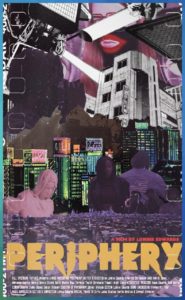
But I can talk about this movie all day. I’m really happy that it got off to such a great start in regards to the current film festival season. We’re ranked 61st by Lift-Off in terms of the top 100 films in the world. The current state of the world has slowed down the momentum in terms of film festivals so it’s been a bit of a bizarre ride so far us. Currently just sitting tight while I wait to see what happens next, like we all are. I’m looking forward to its debut in the states soon. Periphery will actually debut Chicago as part of Chicago Park Districts ONSCREEN Film Festival series September 12th at Jackson Park and I can’t wait.
Is it your final short? Tell us why you decided to take a hiatus in filmmaking.
Yes. It’s absolutely my final short… Unless I do a piece that is connected to an art exhibit to accompany artwork I’m showcasing. I’ve learned and accomplished a lot in 5 years. Periphery is a great end to the series of short films I’ve made and it shows my growth. It also connects the film styles I used in the short film realm and it kind of looks like one of my collage pieces in motion.
Don’t get it twisted I’m not stepping away from film, just short films. I’ve got a multitude of things up my sleeve in terms of feature length movies and episodic series as well. However, in this current space for me as an artist I’m locked into the creation of my mixed media pieces. I want to learn more and explore this realm of art.
Switching gears, how did you get involved in Future Galerie?
I used to be a part of the art collective Canvas Chicago, which has hosted immersive arts events that I enjoyed being a part of. I’ve remained close with the team. Alaiia Gujral is the Creative Director and one of my good friends. When she brought the concept of Future Galerie to me, I didn’t hesitate say yes. I liked the fact that the platform was launched to create a just and tolerant future, and that all proceeds are going to organizations actively combating systemic racism. Besides being one of the featured artists in this project, I’m also a co-curator.
How are the street and visual artists chosen for this online auction?
We wanted to make sure that there were various forms and styles of art pieces to choose from in the online auction. Some of the pieces are featured to bid on, and some are featured in the sweepstakes platform where you can donate as little as $20 for entries into a contest to win a piece. If you don’t win, the proceeds still go to a good cause.
It was important that the selection of artists was diverse as well. As the Creative Director of Future Galerie, Alaiia did a fantastic job bringing her arts network together to make a collective impact. All the artists are tremendously talented and have each donated amazing pieces. I’m glad I get to work with Marco Miller, Max Sansing, Langston Allston, JC Rivera and so many other talents for a powerful cause. You can check out the auctions on the website at https://www.futuregalerie.com/.
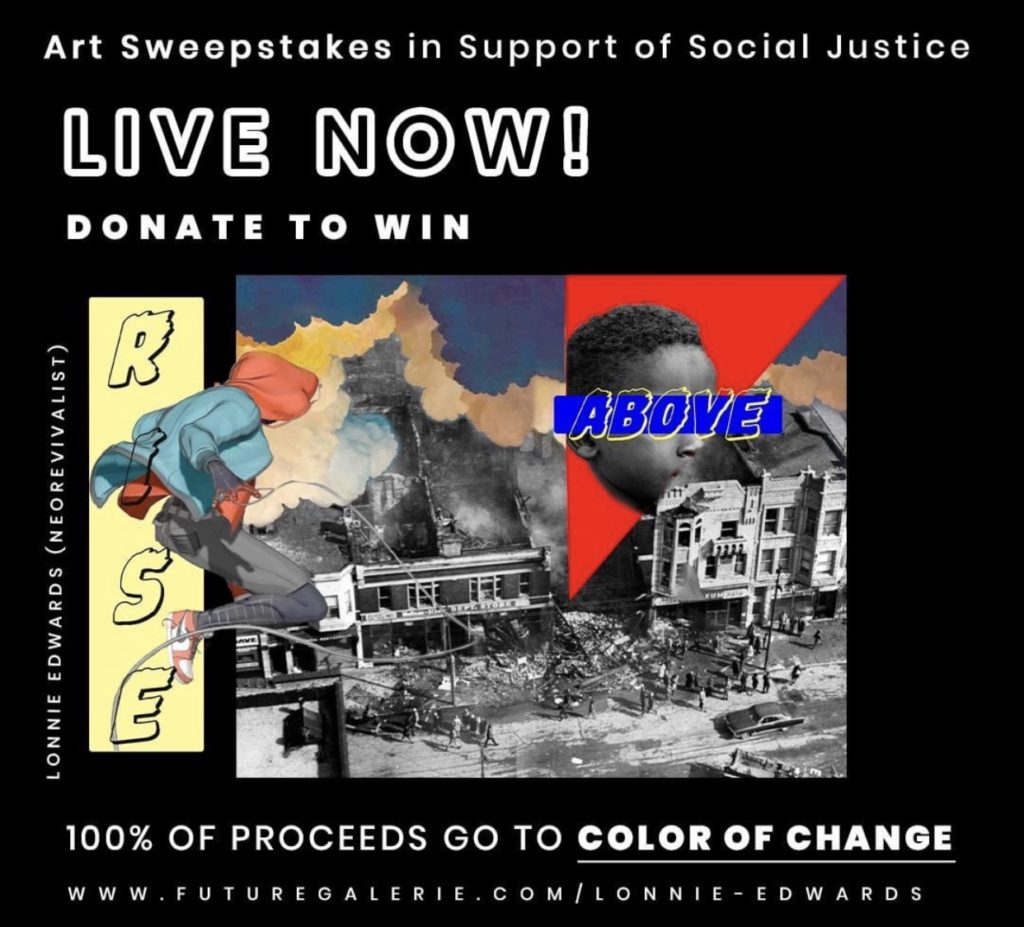
What was the inspiration behind the piece you donated. Which organization will your proceeds go to and why?
It’s a part of my ‘Black Boy’ series, this particular one combines my love of comic books and graphic novels with real life events that have unfolded in the fight against injustice. I wanted to create an inspiring piece that spoke directly to what is going on. Each portion of it speaks to the different emotions that I’m sure a lot of us share in regards to the frustration and desire to stand up, to rise above it. Color of Change is the organization I chose, they started after Hurricane Katrina and have not slowed down. I admire all the things they’ve done in creating campaigns powerful enough to end practices that unfairly hold black people back.
What’s next for Lonnie Edwards?
Growth and maturity. As I said earlier, I feel that my own path is aligned parallel to what i create. As I continue to have experiences that I learn from, my work in all facets will become more of an extension of who I am. Without giving anything away, to respond more directly to your question, I’m working on a few things that will change the scope of film, fashion and art. Other than that I can’t say much besides ‘to be continued’. (Laughs)


